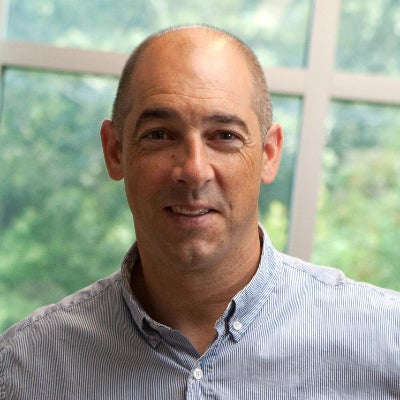- Professor
- Phone: 401.874.4306
- Email: nhowlett@uri.edu
- Office Location: CBLS, Rm 379
- Website
Research
Fanconi Anemia and the Cellular DNA Damage Response
Fanconi anemia (FA) is a rare genetic disease characterized by developmental defects, progressive bone marrow failure, and increased susceptibility to cancer. The incidence of FA is estimated to be between 1 in 200,000-400,000 live births. To date, 15 FA genes have been identified: FANCA, FANCB, FANCC, FANCD1/BRCA2, FANCD2, FANCE, FANCF, FANCG/XRCC9, FANCI, FANCJ/BRIP1, FANCL, FANCM, FANCN/PALB2, FANCO/RAD51C, and FANCP/SLX4. The protein products of these genes are thought to act cooperatively in a pathway, the FA-BRCA pathway, to repair DNA damage and prevent cellular transformation. The study of FA is highly significant for several reasons. First and foremost, FA is a devastating and life-threatening disease that affects several hundred US families alone. Therapeutic options for FA are extremely limited. A greater understanding of the molecular basis of FA will ultimately lead to improved diagnostic and therapeutic approaches to FA, directly benefiting FA patients and their families. Second, as FA is unequivocally linked to both hematologic and non-hematologic cancer susceptibility, our findings will provide important mechanistic insight in to the molecular origins of cancer susceptibility in the general (non-FA) population.
Regulation of the Mono-Ubiquitination of the FANCD2 and FANCI proteins
A central step in the regulation of the activation of the FA-BRCA pathway is the mono-ubiquitination of the FANCD2 (and FANCI) proteins. How this important post-translational modification step is regulated is poorly understood. Furthermore, the role of mono-ubiquitinated FANCD2 in the DNA damage response is unknown. We use biochemical and genetic methods to address these two important questions in FA biology.
Understanding the Role of the FA-BRCA Pathway in the Suppression of Genomic Copy Number Variation
Copy number variation, or copy number change, which refers to deletions or duplications of tens of thousands to millions of nucleotides, is both a normal feature of genetic variation and a major contributor to genetic disease. The mechanisms by which copy number change occurs and the cellular pathways that suppress copy number change are largely unknown. We have recently uncovered an important role for the FA-BRCA pathway in the suppression of de novo copy number change, and are using multiple approaches to further characterize this function.
Education
- Research Fellow in Pediatric Oncology, Dana-Farber Cancer Institute (Boston, MA), 2001-2003
- Research Fellow in Cancer Cell Biology, Harvard School of Public Health, 1998-2001
- Ph.D., Biological and Molecular Sciences, Oxford Brookes University (Oxford, U.K.), 1999
- B.Sc., Industrial Biochemistry, University of Limerick (Limerick, Ireland), 1994
Selected Publications
Rego, M.A., Harney, J.A., Mauro, M., Shen, M., and Howlett, N.G. (2011). Regulation of the activation of the Fanconi anemia pathway by the p21 cyclin-dependent kinase inhibitor. Oncogene, in press.
Cybulski, K.E., and Howlett, N.G. (2011). FANCP/SLX4: A Swiss army knife of DNA interstrand crosslink repair. Cell Cycle, 10, Epub ahead of print.
Hicks J.K., Chute C.L., Paulsen M.T., Ragland R.L., Howlett N.G., Guéranger Q., Glover T.W., and Canman C.E. (2010). Differential roles for DNA polymerases Eta, Zeta, and REV1 in lesion bypass of intrastrand versus interstrand DNA cross-links. Molecular and Cellular Biology, 30, 1217-1230.
Howlett, N.G., Harney J.A., Rego, M.A., Kolling IV, F.W., and Glover, T.W. (2009). Functional interaction between the Fanconi anemia D2 protein PCNA via a conserved PCNA-interaction motif. Journal of Biological Chemistry, 284, 28935-28942.
Rego, M.A., Kolling, F.W., and Howlett, N.G. (2009). The Fanconi Anemia Protein Interaction Network: Casting a Wide Net. Mutation Research, 668, 27-41.
Howlett, N.G. (2007). Fanconi anemia, breast and embryonal cancer risk revisited. European Journal of Human Genetics, 15, 715-717.
Durkin S.G., Arlt, M.F., Howlett, N.G., and Glover, T.W. (2006). Depletion of CHK1, but not CHK2, induces chromosomal instability and common fragile site breakage. Oncogene, 25, 4381-4388.
Howlett, N.G., Scuric, Z, D’Andrea, A.D., and Schiestl, R.H. (2006). Impaired DNA double strand break repair in cells from Nijmegen Breakage Syndrome patients. DNA Repair, 5, 251-257.
Howlett, N.G., Taniguchi, T., Durkin S.G., D’Andrea, A.D., and Glover, T.W. (2005). The Fanconi anemia pathway is required for the DNA replication stress response and the regulation of common fragile site stability. Human Molecular Genetics, 14, 693-701.
Howlett, N.G. and Schiestl, R.H. (2004). Nucleotide excision repair deficiency causes elevated levels of chromosome gain in Saccharomyces cerevisiae. DNA Repair, 3, 127-134.
Liu, T.X., Howlett, N.G., Deng, M., Langenau, D.M., Hsu, K., Rhodes, J., Kanki, J.P., D’Andrea, A.D., and Look, T.A. (2003). Disruption of zebrafish fancd2 causes developmental abnormalities via p53-dependent apoptosis. Developmental Cell, 5, 903-914.
Howlett, N.G., Taniguchi, T., Olson, S., Cox, B., Waisfisz, Q., de Die-Smulders, C., Persky, N., Grompe, M., Joenje, H., Pals, G., Ikeda, H., Fox, E.A., and D’Andrea, A.D. (2002). Biallelic inactivation of BRCA2 in Fanconi Anemia. Science, 297, 606-609.
Howlett, N.G. and Schiestl, R.H. (2000). Simultaneous measurement of the frequencies of homologous recombination and chromosome gain using the yeast DEL assay. Mutation Research, 454, 53-62.

